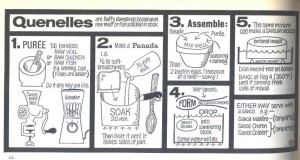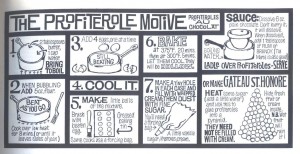The question posed to MA students towards the end of class on the PhD/alt-ac debate was something like: “How does this make you feel?”
I would say “optimistic, but cautious.” But because my goal is ultimately a PhD, and because the job market is tepid at best, why am I optimistic about it at all? Why is anyone? I know that I want to teach, and I don’t have faith in the job market, yet I still convince myself that it is an option that will be open to me if I work hard enough. I think a lot of people who want to go into teaching are also optimists, and also want to help better the world and contribute knowledge and such. If there are other things we can do that would satisfy the same desires, shouldn’t we know about them?
A thread I found running through our conversation and the articles I’ve read about career identity in general seem to point to a common problem: When we start a career, how do we know what we’re really getting ourselves into?
My mom has worked as an attorney at the same company for the past 30 years. She thought that the current overflow of law school students would be solved if they knew what being a lawyer actually meant. Maybe the same problem could be fixed if a requirement for entrance into PhD programs was to follow professors around and see what it’s actually like to be a faculty member (considering that you want to be one).
So why are we not given more information about potential careers before we embark on them (outside of “take your daughter to work day”)? Aside from dire warnings about the job market, I think some practical advice is in order before anyone continues down a rocky path.
This article may be one example of why we don’t get more in-depth information about careers. Any honest transparency could mean that you lose your job or a reference. It’s the same reason people aren’t honest in exit interviews.
Something else about the alt-ac debate that I find disconcerting is this idea that people with PhDs in the humanities can fall right into publishing – a field that is often grossly underpaid and quickly losing momentum.
I think a lot of people from my generation look at their parents successful careers, pension plans and slight unhappiness and ask themselves what they can do differently while still finding success. For some, this is a constant exploration that may lead somewhere like graduate school. And because a lot of us are wholly unsatisfied sitting in a cube working at a boring job all day, maybe we just need to be fully aware of our options and what it takes to get someplace else.




